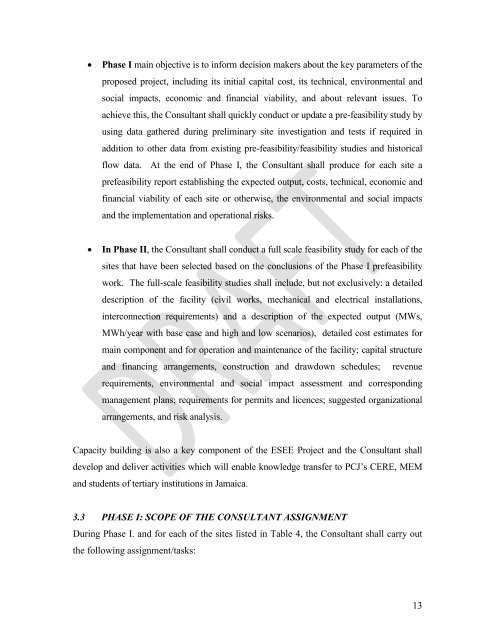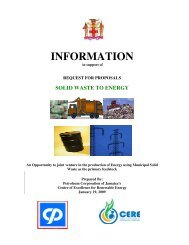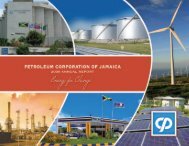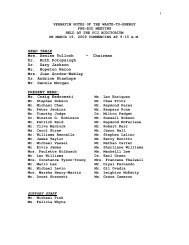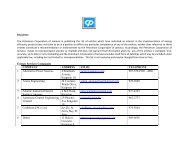terms of reference tor # mempcj201006037re - Petroleum ...
terms of reference tor # mempcj201006037re - Petroleum ...
terms of reference tor # mempcj201006037re - Petroleum ...
You also want an ePaper? Increase the reach of your titles
YUMPU automatically turns print PDFs into web optimized ePapers that Google loves.
Phase I main objective is to inform decision makers about the key parameters <strong>of</strong> the<br />
proposed project, including its initial capital cost, its technical, environmental and<br />
social impacts, economic and financial viability, and about relevant issues. To<br />
achieve this, the Consultant shall quickly conduct or update a pre-feasibility study by<br />
using data gathered during preliminary site investigation and tests if required in<br />
addition to other data from existing pre-feasibility/feasibility studies and his<strong>tor</strong>ical<br />
flow data. At the end <strong>of</strong> Phase I, the Consultant shall produce for each site a<br />
prefeasibility report establishing the expected output, costs, technical, economic and<br />
financial viability <strong>of</strong> each site or otherwise, the environmental and social impacts<br />
and the implementation and operational risks.<br />
<br />
In Phase II, the Consultant shall conduct a full scale feasibility study for each <strong>of</strong> the<br />
sites that have been selected based on the conclusions <strong>of</strong> the Phase I prefeasibility<br />
work. The full-scale feasibility studies shall include, but not exclusively: a detailed<br />
description <strong>of</strong> the facility (civil works, mechanical and electrical installations,<br />
interconnection requirements) and a description <strong>of</strong> the expected output (MWs,<br />
MWh/year with base case and high and low scenarios), detailed cost estimates for<br />
main component and for operation and maintenance <strong>of</strong> the facility; capital structure<br />
and financing arrangements, construction and drawdown schedules; revenue<br />
requirements, environmental and social impact assessment and corresponding<br />
management plans; requirements for permits and licences; suggested organizational<br />
arrangements, and risk analysis.<br />
Capacity building is also a key component <strong>of</strong> the ESEE Project and the Consultant shall<br />
develop and deliver activities which will enable knowledge transfer to PCJ’s CERE, MEM<br />
and students <strong>of</strong> tertiary institutions in Jamaica.<br />
3.3 PHASE I: SCOPE OF THE CONSULTANT ASSIGNMENT<br />
During Phase I. and for each <strong>of</strong> the sites listed in Table 4, the Consultant shall carry out<br />
the following assignment/tasks:<br />
13


